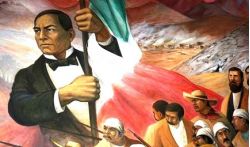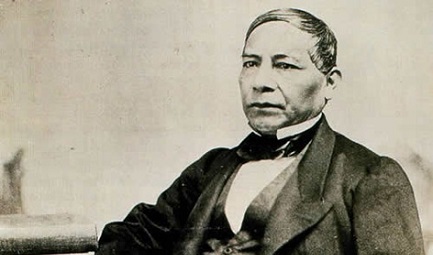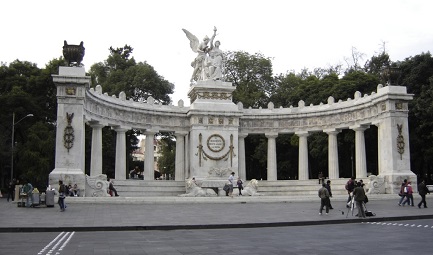Peace means respect for the rights of others

Between people, as between nations, peace means respect for the rights of others.
Benito Juarez

He was an Indian by birth; his parents were Zapotecs and lived in a typical village. Benito was orphaned early and began to earn a living. Till 12 years, he was a simple shepherd. His uncle taught Castellan the boy, and Benito, realizing that learning can give him an invaluable advantage, moved to the city of Oaxaca. There he was fortunate to meet with the priest, who took him to work and send him to school. Throughout the long years of training Benito suffered from harassment because of his Indian origin. But despite this, in 1834 he received a title of lawyer and began to work defending in court Indians, the same as he was. Juarez spoke Latin, French and English, and he was an expert in canon and civil law.
The political career of Benito Juarez began in 1830, when he was elected as a representative of the Department of the Institute of Science and Arts of Oaxaca. From 1831 to 1846 Benito climbed the corporate ladder in his native state and in 1847 he became its governor. He actively participated in the fight against the Americans during the Mexican-American War of 1846-1848.
In 1855, after the overthrow of the dictatorship of General Santa Anna, Benito Juarez became a part of the new government, where he was the Minister of Justice, and in 1858 headed it already. Juarez was actively involved in the preparation of the new constitution of Mexico of 1857, and he was one of the authors of the "Reform Act", by which the church was separated from the state and its property were nationalized.
In 1858 he became a president of Mexico and the next year issued the famous "Law of the nationalization of church property". Juarez was able to overcome the stiff resistance of conservatives in 1860 with the help of the United States. But in 1862 the French invaded Mexico and put in charge of the country Maximilian Habsburg as emperor. Benito Juarez led the resistance. His troops defeated the usurper and executed him in 1867.
The same year he was again elected as a president. In the new phase of its work Benito Juarez secured free secular education all across the country. He also supported the construction of railways and the telegraph. In 1871, Juarez again ran for president and won. Then Lerdo de Tejada and Porfirio Diaz rebelled, accusing him of rigging elections, but were defeated in 1872.
Unfortunately, Benito suffered heart and lung diseases. On the night of July 18, 1872, he died of the attack and was later buried with hero honors.
Mexicans still honor one of the greatest presidents. Juarez was the first president of Indian origin, which during his reign realized many reforms for the benefit of his people. His biography is the way the country.
There is a museum in honor of Benito Juarez in the National Palace that was his residence during his reign. There are furniture and personal things of Juarez.


In southern part of Alameda Park the cenotaph of Benito Juarez (tombstone in the place, which does not contain the remains of the deceased) is installed. It’s majestic semicircle of Carrara marble.

The birthday of Benito Juarez is a holiday in Mexico. On its eve in the country's schools poetry readings are organized. They are dedicated to the noted Indian, who became a role model for many, many generations of Mexican politicians.

Enjoy ten fabulous places to swim along the coast of Quintana Roo. The sun, sand and gorgeous turquoise-blue waters of the Caribbean are for you! You will definitely want to come back!

Guatemala is a small country with a lots of mysteries which have not yet been deciphered. We want to present you some of the facts about this amazing country and we hope that thanks to them, your wish to visit Guatemala will come true.















